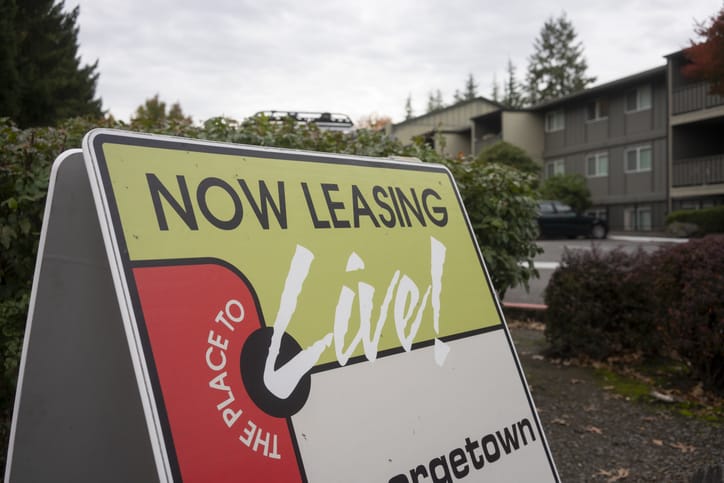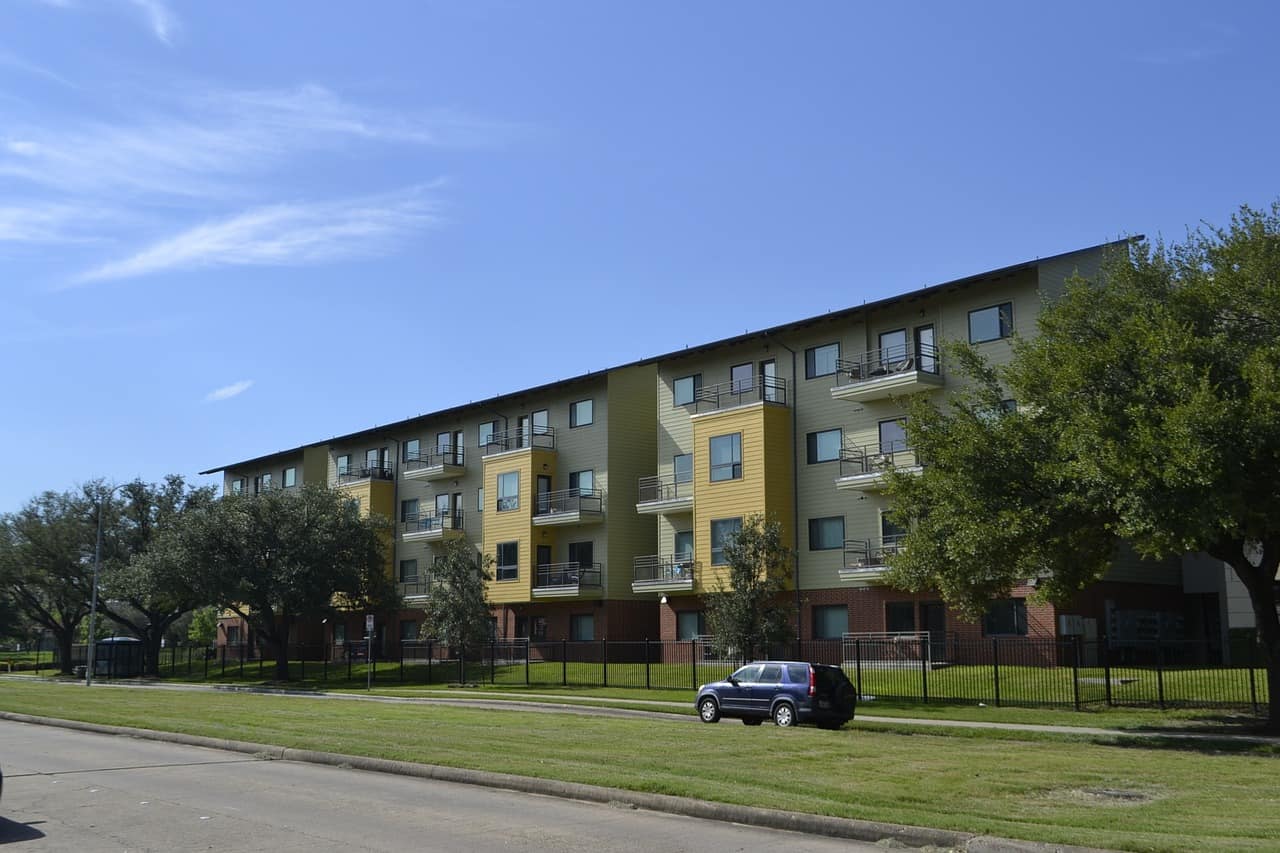Whether this is your first apartment or your first time renting after some years, there‘s a lot to consider before signing that lease agreement. The ups and downs of booking a rental property can be daunting. That’s especially true if there are many apartment communities to choose from.
What Renters Need to Know
For most apartments, the steps in the renting process are usually the same. You see a likely place, settle the details, and consider the current apartment hunt over. You know about the expectations: one month’s rent amount, first and last month’s rent as part of the move-in costs for apartments, and so on. Set a date for the move-in day, and you can finally sign on for your perfect apartment!
Unfortunately, it’s not that simple.
For college students and anyone with a choppy rental history, the chances of getting short-changed or scammed on their rental agreement are quite high. Even when the property owner or property managers are honest, it can be easy to make small mistakes that make you regret the decision later on.
Renters Can Make Mistakes
These mistakes can range from irritation at best to highly costly at the worst. Whether you’re dealing with a property manager directly or a faceless property management company, think long and hard while filling in the rental application. Even after you’ve started living in your first apartment, there are several mistakes that might get you evicted, blacklisted, or liable for several damages.
There’s a lot to know for first-time apartment renters. So, keep on reading for more details.
What Not to Do When Renting an Apartment

Do you think you’ve finally found that dream apartment home? Only time will tell if your life is going to be a dream or not, especially if it’s your first apartment.
Knowing what to expect can help you avoid these mistakes and blunders (both before paying rent and after).
Wondering what to avoid when looking for your first apartment? Here are some of the most common mistakes to keep in mind:
Skipping the In-Person Visit
Browse the online listings, but don’t sign anything before visiting the apartment building and looking at the unit in-person. Even with all the pictures from every angle, you don’t know what shortcomings are lurking in the corners.
No one wants to pay a few months’ rent upfront only to find that they’re stuck in a cramped apartment with not nearly as much storage space as the photos seemed to show. You also want to visit the apartment to make sure there are no funky smells around, that there aren’t any noisy neighbors, and that the pictures of the apartment you saw online aren’t from a decade ago.
If the first in-person visit was during the day, you can check back again during the night – and vice versa.
Not Knowing the Exact Required Upfront Costs
Make sure to ask the exact amount of the apartment security deposit before signing the lease. If you can’t manage that payment immediately, consider something else or get a cosigner to take on some of the financial obligation.
The same goes for all expected monthly expenses. The upfront cost of the security deposit is usually a major amount. Along with asking that exact number, you should also know what is deducted from your security deposit and why.
It is best not to break a lease early, but at times, it’s unavoidable. You should ensure that it’s possible to make an exit if things get too unbearable at any given place.
If, despite your best planning and budgeting, you find yourself in a financial pinch when it comes to your rental costs, there are options available to help you through tough times. For instance, exploring emergency loans for rent can be a viable solution to ensure you remain in good standing with your landlord and avoid the risk of eviction. These loans are designed to provide quick financial relief for those facing temporary hardships, enabling you to cover your rent during unforeseen circumstances. It’s essential to consider such financial aid as part of your overall emergency plan, ensuring you’re prepared for any situation that might affect your ability to pay rent on time.
Ignoring Seemingly “Minor” Damage
When you get to the apartment on the move-in day or even during a tour, photograph any damage that’s visible. Do not fall for any claims about the damage being minor or harmless.
A first-time renter may not know this, but any damage during your stay as a tenant can be attributed to you. Even if that paint was already cracking when you got there, many landlords might try to pin the cleaning or painting bill on you when the lease is up. Therefore, it’s always wise to act proactively so even the minor damage doesn’t come over you.
Not Asking About Utility Bills
You may think you’ve read all the details about the monthly rent, which covers most of your living costs for thirty days. However, you just might move-in and find that the month’s rent doesn’t include apartment utilities, i.e. the water, gas, garbage pickup, monthly maintenance, or electricity costs. That is when it makes sense to read the fine print and recheck the details about all bills apart from the monthly rent (learn how to read a lease here).
The best way to avoid unpleasant surprises while renting is to read the fine print very closely. Whether this is your first apartment or not, make sure to read the lease carefully and consider all the details before signing. This might help you avoid a hefty upfront cost, along with late fees and other unexpected fees.
Not Reading the Pet Policy and Visitor Restrictions Carefully
If you have pets, you naturally want them to live with you in the new apartment. Most apartment communities might advertise that they have a friendly apartment pet policy, but the fine print might say otherwise. While reading your lease agreement, make sure to go over the pet policy with a fine comb. They might have several breed or weight restrictions that disqualify your pet from staying in one of their apartments.
You may not expect your landlord or property management company to restrict your guests, but it does happen. Some lease agreements may stipulate that since visitors and guests don’t pay rent, they can’t stay longer than a couple of nights at the most.
Relying on the Landlord’s Insurance Policy
Assuming that the insurance policy of the landlord will cover your personal property is yet another mistake. The landlord might get compensation for the unit that was destroyed or damaged, but the loss of your valuable belongings is going to harm you alone.
You don’t have to suffer quite as much in the case of a fire, a burglary, or a natural disaster striking the apartment building. That is why you should have a plan for the safety of your belongings. One such way is to have a minimalistic approach when it comes to moving a lot of furniture to your new apartment.
Not Having Your Documents in Order
In order to book apartments for rent, you have to provide the landlord or property manager with a lot of documentation. This includes bank statements, pay stubs, references, and several other documents. All of these come together to provide proof that you can afford the first month’s rent and keep on paying after that. Plus, it assures the authorities that you are a fairly responsible, mature tenant who won’t cause any trouble.
Not Taking the Season into Account
That seemingly perfect apartment might be yours for a lot less than you’re signing for at the month. Before even embarking on your apartment hunt, you can conduct a search for the worst month to rent an apartment in your required area. If possible, shift your search time to the best times of the year to rent an apartment with the best perks possible.
You should also know when the lease starts and ends. There is a difference between a year-long lease and a 12-month long lease. Make sure you know what that is before committing to either one. Find out when apartment leases usually start. You can then compare those ranges with the offer you have.
Not Setting Rental Access Rules
If you don’t set boundaries now, it will be difficult to do so after the lease starts. Make sure that no one can enter the apartment without your express permission, not even the landlord or property owner.
Some landlords can be a bit intimidating and overbearing on such points. Stand your ground, however, and leave without signing if it looks like you won’t get the basic right of privacy.
Not Considering the Location
Make sure that the location of your potential new apartment is a convenient one. Your work commute, the kids’ schooling, and recreational opportunities should all be convenient instead of a regular hassle. Groceries, general shopping, and other necessities of a good life also depend on having a central location.
As you take an apartment tour, you should ask the landlord about the neighborhood, the nearby convenience stores, and the work commute details. This will give you a clear idea if the location aligns well with your preferences.
The Takeaway
When you’re on an apartment hunt, know that it’s not just about how much rent you’ll have to pay. You may not even get the perfect apartment the first time round, but it can be a fairly decent stepping stone until you get that ultimate dream apartment.
The tips above can help you save money, retain your security deposit, and benefit the most from your rental agreement. While you do need to know how much money you need to rent an apartment, it’s even more important to know the things to avoid. Make an apartment rental checklist of the points above and tick them off before submitting any rental application. With this precaution, even the first apartment can be an amazing experience.









